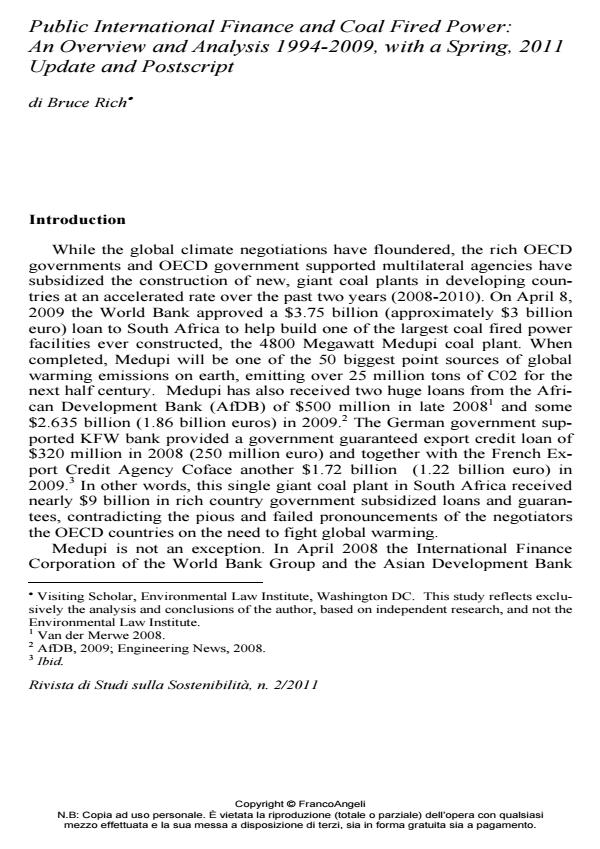Public International Finance and Coal Fired Power: An Overview and Analysis 1994-2009, with a Spring, 2011 Update and Postscript
Titolo Rivista RIVISTA DI STUDI SULLA SOSTENIBILITA'
Autori/Curatori Bruce Rich
Anno di pubblicazione 2011 Fascicolo 2011/2
Lingua Inglese Numero pagine 45 P. 119-163 Dimensione file 725 KB
DOI 10.3280/RISS2011-002008
Il DOI è il codice a barre della proprietà intellettuale: per saperne di più
clicca qui
Qui sotto puoi vedere in anteprima la prima pagina di questo articolo.
Se questo articolo ti interessa, lo puoi acquistare (e scaricare in formato pdf) seguendo le facili indicazioni per acquistare il download credit. Acquista Download Credits per scaricare questo Articolo in formato PDF

FrancoAngeli è membro della Publishers International Linking Association, Inc (PILA)associazione indipendente e non profit per facilitare (attraverso i servizi tecnologici implementati da CrossRef.org) l’accesso degli studiosi ai contenuti digitali nelle pubblicazioni professionali e scientifiche
The World Bank and other international public financial institutions are continuing an eighteen year trend of supporting coal-fired power plant construction throughout the developing world and economies in transition. By financing this new carbonintensive infrastructure, multilateral development banks (MDBs) and export credit agencies (ECAs) are hamstringing the fight against global warming and setting back longer term efforts to alleviate poverty in the world's poorest countries. From 1994 through early 2009, the World Bank, other MDBs and ECAs financed new construction or expansion of 88 coal-fired power plants. These plants will generate roughly 791 million tons of CO2 emissions per year, or more than 75% of the 2008 annual emissions for coal-fired power in the entire European Union. According to the International Energy Agency, without a decisive reorientation of energy investment from carbon-intensive sources in developing and emerging economies, atmospheric CO2 will overshoot the point of no return for dangerous global warming, even if the OECD countries were to reduce their CO2 emissions to zero by 2030. Scarce public international financial resources in the energy sector should go to renewable technologies and energy efficiency, which will help countries grow and alleviate poverty while reducing the impacts of global warming on the poor.
Parole chiave:Climate change; coal; finance; World Bank; Export Credit Agencies
Bruce Rich, Public International Finance and Coal Fired Power: An Overview and Analysis 1994-2009, with a Spring, 2011 Update and Postscript in "RIVISTA DI STUDI SULLA SOSTENIBILITA'" 2/2011, pp 119-163, DOI: 10.3280/RISS2011-002008